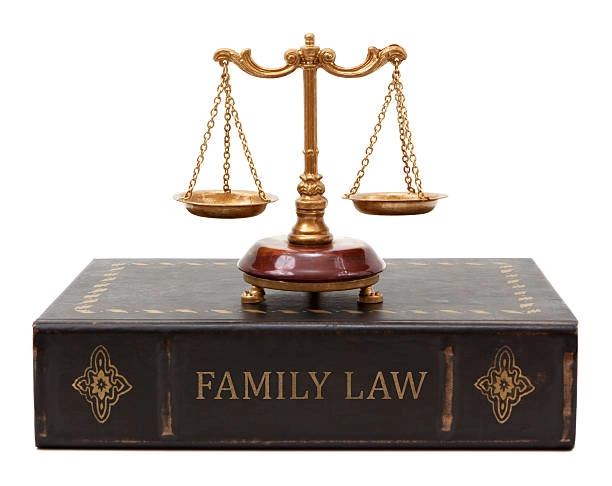Can You Really Get a Divorce Without a Lawyer? Pros & Cons

Divorce Without a Lawyer: Pros, Cons, and Key Considerations
Divorce is a life-altering decision, and the process can be overwhelming, especially when considering whether to hire a lawyer. Many people wonder, Can you get a divorce without a lawyer? The answer is yes, but it depends on your specific situation. While self-representation can save money and offer more control, it also comes with risks. This article delves into the pros and cons of navigating a divorce without legal representation, providing insights to help you make an informed decision.The Legal Framework of Divorce Without a Lawyer
When asked, Can you get a divorce without a lawyer? Pros & Cons, it’s essential to grasp the legal framework. In many jurisdictions, individuals can represent themselves in court, a practice known as pro se representation. This allows you to file for divorce, attend hearings, and negotiate settlements without legal counsel. Key Points:- Cost Savings: Legal fees can be substantial, and self-representation eliminates these expenses.
- Control Over the Process: You maintain full control over decisions, ensuring they align with your priorities.
- Simpler Cases: Uncontested divorces, where both parties agree on terms, are more manageable without a lawyer.

Ready to connect with top legal professionals? Get immediate support— Call us at 877-550-8911.
Pros of Handling a Divorce Without a Lawyer
Handling your divorce without a lawyer can offer several advantages, particularly in straightforward cases. Advantages:- Financial Savings: Legal fees can quickly add up, making self-representation an attractive option for those on a budget.
- Faster Process: Without the back-and-forth between attorneys, uncontested divorces can be resolved more quickly.
- Personalized Outcomes: You have the freedom to negotiate terms that reflect your unique needs and values.
- Improved Communication: Direct negotiations with your spouse can foster amicable resolutions, reducing conflict.
Cons of Handling a Divorce Without a Lawyer
While self-representation has its perks, it also comes with significant risks. Drawbacks:- Legal Complexity: Divorce laws vary by state, and navigating them without expertise can lead to costly mistakes.
- Emotional Strain: Managing a divorce alone can be emotionally taxing, potentially clouding your judgment.
- Financial Risks: Errors in asset division or spousal support calculations can have long-term financial consequences.
- Missed Deadlines: Courts are strict about deadlines, and missing one can delay or dismiss your case.
Key Considerations Before Going Solo
Before deciding to handle your divorce without a lawyer, evaluate the following factors: Considerations:- Complexity of Your Case: Simple, uncontested divorces are more manageable without legal help.
- State Laws: Familiarize yourself with your state’s divorce laws to ensure compliance.
- Emotional Readiness: Assess whether you can handle negotiations and conflicts without professional support.
- Available Resources: Utilize tools like online divorce software and court-provided resources to guide you.

How to Prepare for a DIY Divorce?
Preparation is key to successfully navigating a DIY divorce. Follow these steps to ensure a smooth process: Steps to Prepare:- Gather Essential Documents: Collect marriage certificates, financial statements, and other relevant paperwork.
- Research State Laws: Understand the specific requirements for filing a divorce in your state.
- List Assets and Debts: Create a comprehensive inventory of marital property and liabilities.
- Develop a Parenting Plan: If children are involved, outline custody and visitation arrangements.
- Familiarize Yourself with Court Procedures: Learn how to file petitions and complete required forms.
Common Mistakes to Avoid
When handling a divorce without a lawyer, it’s easy to make mistakes that can complicate the process. Mistakes to Avoid:- Underestimating Complexity: Overlooking the intricacies of your case can lead to unfavorable outcomes.
- Incomplete Documentation: Failing to provide all necessary documents can delay proceedings.
- Ignoring State Laws: Each state has unique divorce laws, and non-compliance can result in legal issues.
- Neglecting Emotional Support: Divorce is emotionally draining; seek counseling or support groups if needed.
Resources and Tools for a Self-Managed Divorce
Several resources can assist you in managing your divorce without a lawyer. Helpful Tools:- Online Divorce Software: These platforms guide you through the paperwork, ensuring accuracy.
- State Court Websites: Access jurisdiction-specific forms and instructions.
- Support Groups: Connect with others going through similar experiences for advice and emotional support.
Real-Life Experiences: Success Stories and Challenges
Many individuals have successfully navigated a DIY divorce, while others have faced challenges. Examples:- Sarah’s Success: Sarah and her husband agreed on all terms, allowing them to complete their divorce without legal help. They used online resources to file paperwork correctly and saved on legal fees.
- John’s Struggles: John attempted a DIY divorce but overlooked critical details, resulting in an unfair settlement.
Making the Final Decision: Is a Lawyer Necessary?
Ultimately, the decision to hire a lawyer depends on your unique circumstances. Factors to Consider:- Complexity of Your Case: High-conflict divorces or those involving significant assets may require legal expertise.
- Financial Situation: If you can afford a lawyer, their guidance can help you avoid costly mistakes.
- Emotional Capacity: Assess whether you can handle the emotional toll of managing a divorce alone.
FAQs
1. Can I get a divorce without a lawyer? Yes, you can represent yourself in a divorce, but it’s important to assess the complexity of your case before proceeding. 2. What are the benefits of a DIY divorce? Cost savings, faster resolution, and greater control over the process are some of the main advantages. 3. What are the risks of handling a divorce without a lawyer? Risks include legal errors, financial losses, and emotional strain. 4. How can I prepare for a DIY divorce? Gather essential documents, research state laws, and familiarize yourself with court procedures. 5. When should I consider hiring a lawyer? If your case involves significant assets, child custody disputes, or high conflict, consulting a lawyer is advisable.Don’t wait to secure the legal representation you deserve. Visit Legal Case Review today for free quotes and tailored guidance, or call 877-550-8911 for immediate assistance.
